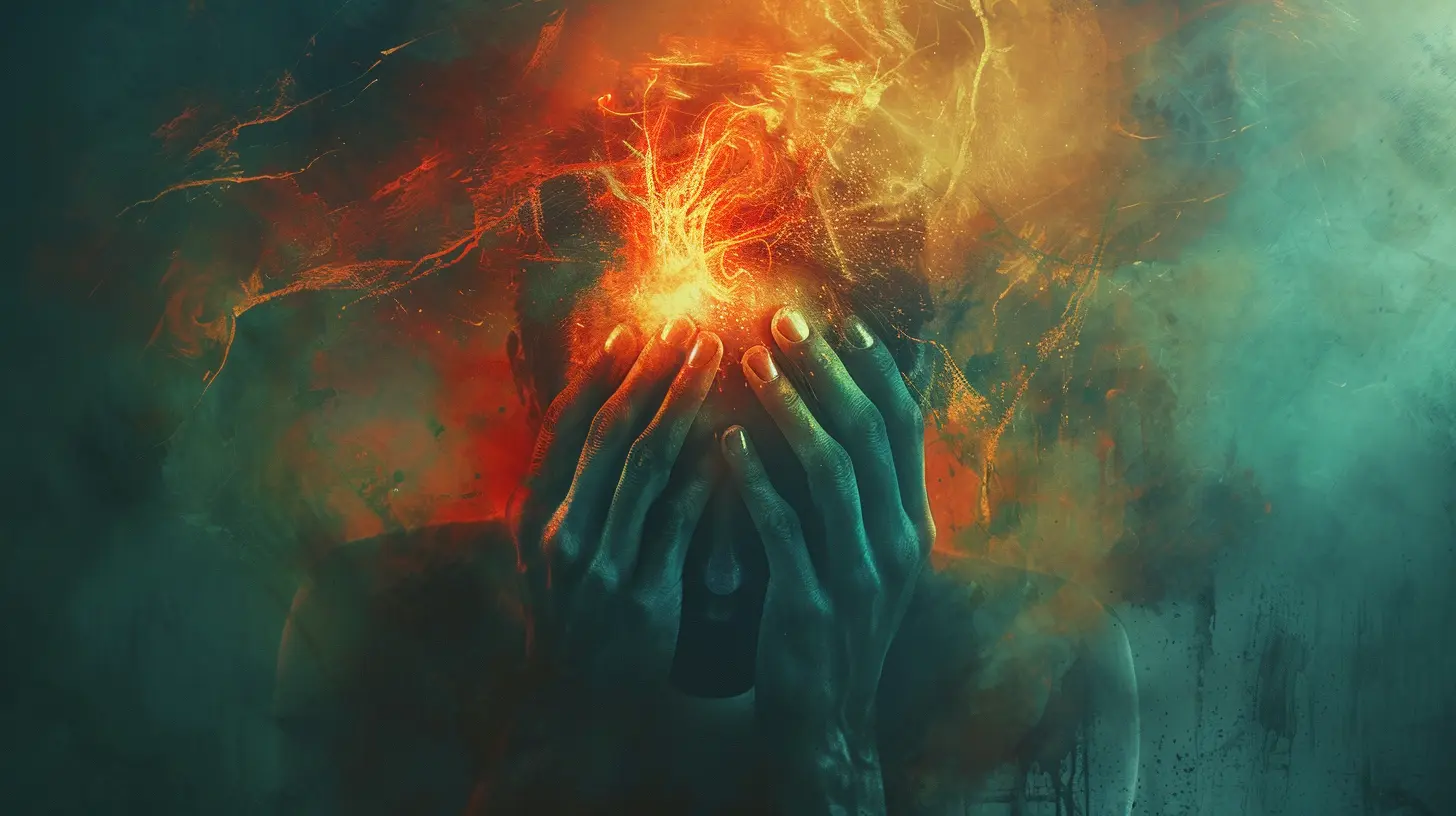Identifying the Early Warning Signs of Schizophrenia
5 June 2025
Let’s face it—mental health is still one of those topics that many people shy away from. And when it comes to conditions like schizophrenia, the mystery and stigma surrounding it just make things worse. But what if we looked at it differently? What if we stopped being afraid and started being more aware? Recognizing the early warning signs of schizophrenia might sound like trying to find a needle in a haystack. But with a bit of curiosity and an open mind, it's absolutely possible.
Whether you're concerned about yourself, a loved one, or you're just plain interested in psychology—this article is for you. We'll break down what schizophrenia is, what subtle (and not-so-subtle) early signs look like, and how early intervention might really change everything. Ready to dive deep? Let’s go.
What Is Schizophrenia, Really?
At its core, schizophrenia is a serious mental health disorder that affects how a person thinks, feels, and behaves. People with schizophrenia often seem like they’ve lost touch with reality, and that can be scary—for both them and the people around them. But here's something important: schizophrenia doesn't just pop up overnight. It builds. Slowly. Quietly. And that's why early detection is so crucial.The earlier you spot the early indicators, the better the chances are for effective treatment and a more stable life. It's not about labeling or judging—it's about understanding and acting early.
Why Early Detection Matters
Imagine noticing the faint crack in a dam. At first, it’s just a hairline fracture. But if you ignore it, the whole thing might burst one day. That’s kind of how schizophrenia works. There’s usually a “prodromal phase”—that’s a fancy term for the early stage—where subtle signs start creeping in.Catching those signs early doesn’t mean you’re slapping a label on someone. It means you’re giving them a fighting chance before things spiral out of control. It’s about helping someone stay afloat before they feel like they’re drowning.
The Common Early Warning Signs of Schizophrenia
Okay—so what should you actually be looking for? The early symptoms of schizophrenia can be surprisingly sneaky. They often resemble common teenage growing pains or stress-related behavior, which makes them easy to brush off. But certain patterns, especially when they pile up, can be pretty telling.Let’s break them down:
1. Social Withdrawal
You know that friend who suddenly starts ghosting everybody? They stop texting, miss hangouts, and basically isolate themselves. It might be nothing—but it could also be a red flag.Social withdrawal is one of the earliest signs of schizophrenia. People may feel disconnected, like they don’t belong, or like others are somehow against them. It’s not the usual “I need some me-time” phase. It's deeper and more persistent.
2. Flat Emotions or Unusual Reactions
Sounds paradoxical, right? But hear me out. A person might suddenly stop showing emotions—talking in a monotone, not laughing at jokes, or showing zero expression.On the flip side, they could also have emotional reactions that don’t quite fit. Crying in happy moments. Laughing during serious conversations. It’s confusing—but it’s also something to look out for.
3. Changes in Thinking and Speech
Ever tried having a conversation with someone and felt like they were on a totally different planet? People in the early stages of schizophrenia might speak in disorganized ways. Their sentences jump from one idea to another without making much sense.It’s like trying to read a novel where the pages are all mixed up. The thoughts are there, but they’re scattered.
4. Odd or Magical Thinking
We all have our quirks. Some people believe in horoscopes, others knock on wood—but when someone starts believing that their thoughts are being controlled or they have superhuman abilities, that’s a different territory.Believing in things that are clearly out of touch with reality—without cultural or religious context—can be a sign of psychosis developing.
5. Heightened Suspicion or Paranoia
This one’s tricky. A little suspicion now and then? Totally normal. But what if someone starts believing everyone’s out to get them? Or that people are reading their mind or watching them constantly?When someone starts living in fear based on irrational feelings of persecution, that's when the alarm bells should start ringing.
6. Neglect of Personal Hygiene
We’re not talking about skipping a shower on a lazy Sunday. We’re talking about prolonged neglect—like wearing the same clothes for days, not brushing teeth, or generally seeming unaware or indifferent to appearance.This isn’t about being messy. It’s often a reflection of how disconnected someone is becoming from their surroundings—and even from themselves.
7. Sleep Problems and Changes in Routine
Sleep is often the first thing to go off track when mental health is in trouble. Insomnia, sleeping all day, staying up all night—these are red flags when they accompany other behavioral changes.Routine changes like skipping meals, losing interest in school or work responsibilities, or just forgetting important things can also be part of the picture.
When These Signs Add Up
Here’s the truth: any one of these signs on its own doesn’t automatically mean schizophrenia. But when several start showing up together and linger for weeks or months—that’s when it’s time to pay attention.It’s like assembling a puzzle. One piece won't tell you much. But as you gather more, the picture gets clearer.
So, if you notice these behaviors in yourself or someone else, it’s not about panicking. It’s about gently raising the question: could something deeper be going on?
What Triggers These Early Signs?
Schizophrenia has no single cause. It’s usually a mix of genetic vulnerability, chemical imbalances in the brain, and environmental stressors. But sometimes, certain factors might bring those early signs to the surface:- High stress or trauma
- Drug use, especially hallucinogens or marijuana
- Family history of schizophrenia or other mental illnesses
It’s important to remember that even with risk factors, not everyone develops schizophrenia. But knowing what might contribute can help you stay vigilant.
What to Do If You Suspect Schizophrenia
Here’s where things get real. If you spot these signs in someone (or even in yourself), what should you do?First—don’t jump to conclusions. But do take it seriously. Talk to a mental health professional. Encourage the person to get evaluated. You won’t be forcing anything—you’ll just be opening the door for support and clarity.
And please, ditch the shame. Seeking help isn’t a weakness. It’s one of the strongest, boldest things a person can do.
How Professionals Diagnose It
Mental health practitioners don’t guess—they assess. If someone sees a psychiatrist or psychologist, they'll go through interviews, history-taking, and may even involve some brain imaging or blood tests (just to rule out other causes).There’s a specific set of criteria in the DSM-5 (that’s the diagnostic bible for mental disorders). To be diagnosed with schizophrenia, symptoms usually need to persist for at least six months with significant impact on daily life.
Can Early Intervention Really Help?
Absolutely. The earlier treatment begins, the better the long-term outcome. Think of it like catching cancer early—more options, more hope, less damage.Therapy, medication, and support systems can help someone manage symptoms, reduce relapse risk, and lead a more fulfilling life. Early intervention also reduces the severity of symptoms and can even delay or prevent full-on psychosis.
Helping Someone Facing These Symptoms
So, what if you think someone you care about is showing these early signs? Be gentle. Be supportive. Don’t accuse or diagnose—just show concern and openness.You might say things like:
- “I’ve noticed you seem more withdrawn. Are you okay?”
- “You haven’t been yourself lately—want to talk about it?”
- “Would you be open to talking to someone together?”
They might resist. They might deny. That’s okay. Stay consistent, patient, and loving. Sometimes, just knowing someone is there makes all the difference.
Let’s Talk About Hope
It’s easy to view schizophrenia as a life sentence. But the reality? Many people with schizophrenia live rich, meaningful lives. With the right treatment, support, and understanding, they work, have relationships, and pursue dreams.The earlier we spot it, the better the chances. It's not about "fixing" someone. It’s about empowering them with the tools they need to thrive.
Final Thoughts
Identifying the early warning signs of schizophrenia isn’t about playing doctor or adding to stigma. It’s about compassion. Awareness. Curiosity. It’s about saying, “Hey, I see you—and I care.”So, if you’re here reading this, take a moment to appreciate your own awareness. Whether you’re concerned about a friend, a family member, or your own experience, you’re already taking a powerful step.
Stay observant. Stay kind. And remember—mental health isn't just a destination. It's a lifelong journey, and we’re all navigating it together.
all images in this post were generated using AI tools
Category:
Psychiatric DisordersAuthor:

Paulina Sanders
Discussion
rate this article
3 comments
Eliana James
Ah yes, because who wouldn’t want to play detective in their own mind? Just look for those charming little signs of schizophrenia lurking around like an unwanted house guest. Perfect way to spice up your daily routine—because mental health is just a fun game, right?
June 18, 2025 at 3:37 AM

Paulina Sanders
I appreciate your perspective, but recognizing early signs of schizophrenia is crucial for timely intervention and support. It's a serious issue that deserves thoughtful attention.
Ardyn Lewis
Awareness of symptoms can lead to early intervention.
June 9, 2025 at 3:18 AM

Paulina Sanders
Absolutely! Early awareness is crucial for timely intervention and better outcomes in managing schizophrenia.
Hadley Hamilton
This article is a fantastic resource! Understanding early warning signs can make a big difference in seeking help. Cheers to awareness!
June 8, 2025 at 4:00 AM

Paulina Sanders
Thank you! I'm glad you found the article helpful. Awareness is key in addressing mental health issues. Cheers!



